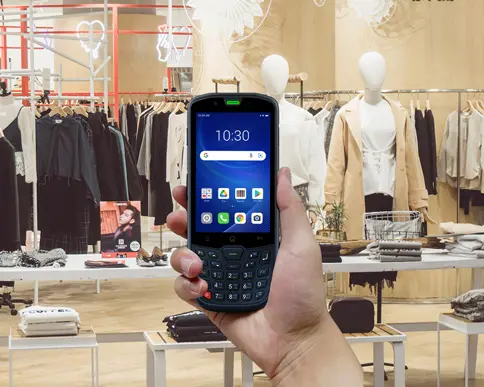Brief Introduction
However, with so many mobile computers on the market, choosing the right one for your needs can be a challenge for many businesses and users. Today, we'll provide you with mobile computers buying guide to help you make an informed decision in this complex market.

1. Define Your Needs and Identify Usage Scenarios
Before purchasing mobile computers, the first step is to clarify your specific requirements. Different applications demand different features. For example:
Logistics: Durability and battery life are critical.
Retail: Fast scanning and payment integration may be prioritized.
Healthcare: High-precision input and hygienic materials are essential.
1.1 Industry-Specific Requirements
Logistics: Requires barcode/QR scanning, ruggedness for harsh environments, long battery life, and strong data processing.
Retail: Needs POS payment integration, inventory management, and a user-friendly interface to boost efficiency.
Healthcare: Demands high accuracy in data entry, antimicrobial materials, and reliable performance for patient safety.
1.2 User Considerations
Different users have varying skill levels and needs. Tech-savvy users may prefer customizable features, while non-technical users benefit from intuitive interfaces. Always consider the end-user's experience when selecting a device.
2. Choose the Right Operating System
Mobile computers typically run on Android, iOS, or embedded OS, each with distinct advantages.
2.1 Android OS
Open-source, flexible, supports third-party apps, customizable.
2.3 Windows OS
Windows-based mobile computers, while less flexible in functionality compared to Android devices, excel in stability and durability—making them ideal for industries with extreme environmental demands and high-security requirements, such as healthcare and manufacturing.
3. Hardware Specifications Matter
Performance depends on processor, RAM, storage, and display quality.
3.1 Processor
A multi-core CPU ensures smooth multitasking.
Higher clock speeds improve efficiency for demanding applications.
3.2 RAM & Storage
Minimum 2GB RAM for smooth operation.
8GB+ storage recommended for most business uses.
4. Durability & Reliability
Since mobile computers often operate in tough conditions, ruggedness is crucial.
4.1 Industrial Standards
Look for IP67/IP68 ratings for dust/water resistance.
MIL-STD-810G certification ensures shock/drop resistance.
4.2 Durability Testing
Check manufacturer drop-test and pressure-test reports before purchasing.
Founded in 2002, SEUIC Technologies Co., Ltd. has been committed to grasping core technologies, enhancing technological innovation, providing excellent self-owned brand products, including mobile computers, RFID readers, tablets, barcode scanners and fixed readers. With highly reliable products and efficient services, our products have been widely used in manufacturing, retail, logistics & transportation, healthcare and other industries. We provide frontline workers more durable real-time data collection tools, helping you do more thereby to catapult your productivity to the next level.- The Critical Role of Mobile Computers in Warehouse Logistics2025-06-25
- Seuic Mobile Computers: Multi-Scenario Efficiency Solutions2025-06-24
- Operation Guide and Industry Applications of Seuic Mobile Computers2025-06-23
- How to Choose Mobile Computers for Your Industry Needs2025-06-20
- Mobile Computers: The All-in-One Tool from Data Collection to Industry Implementation2025-06-19